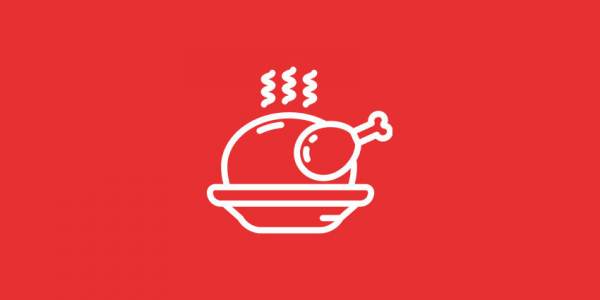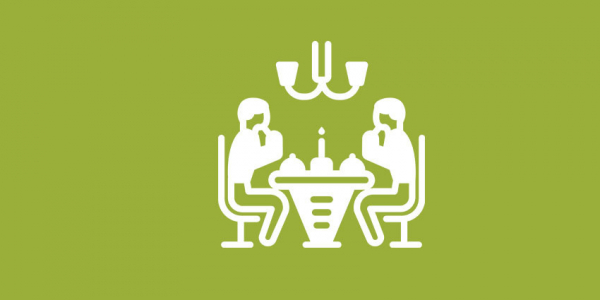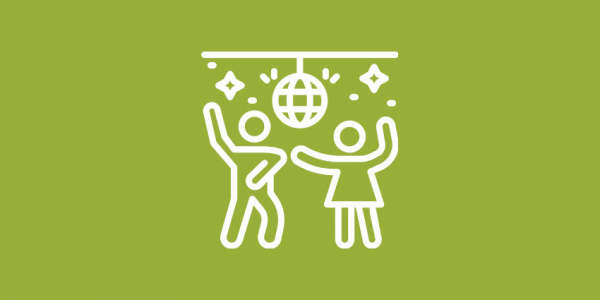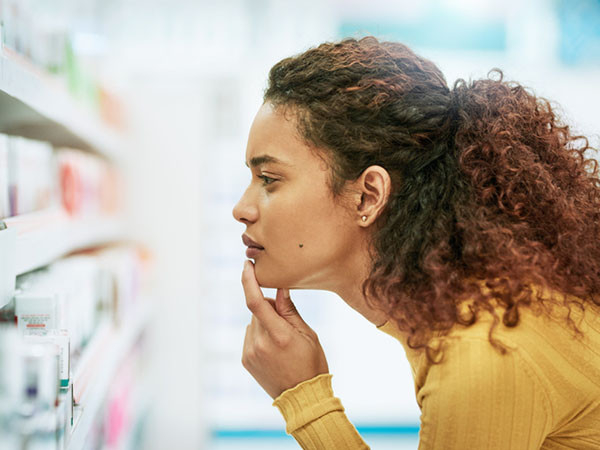
Get expert advice on gathering safely from Harvard Health Publishing. Spoiler alert: vaccination is key to helping keep everyone healthy. Below, our faculty contributors share their own plans and advice for safely enjoying the holidays this year while answering three important questions.

Roger Shapiro, MD
Associate professor of immunology and infectious diseases, Harvard T.H. Chan School of Public Health, Boston
What are your plans this year for gathering — or not gathering — with family or friends during Thanksgiving and other winter holidays, and why?
Unlike 2020, my family will be gathering for Thanksgiving in 2021. Everyone in the family is vaccinated, and most are now boosted as well. We are all comfortable with the protection that being vaccinated brings, and there is agreement that if a COVID-19 exposure were to occur, it is unlikely to cause severe illness.
What advice can you offer people planning to gather in person to reduce the chance of getting or spreading the virus that causes COVID-19?
Everyone who can get vaccinated should be vaccinated, and those who qualify for a booster should get one. Children 5 to 11 may not have their second shot by Thanksgiving but can certainly be fully vaccinated by Christmas. If there are unvaccinated members of your family, your situation is no different than in 2020: gathering is unsafe for the unvaccinated because the first exposure to this virus can be lethal without protection from a vaccine. Additionally, people who are unvaccinated are more likely to be infected before traveling, so they are more likely to bring the virus to the table, possibly causing illness (even if mild) among those who are vaccinated. For families that are all vaccinated and wishing to further reduce the possibility of transmission, taking a rapid antigen test prior to gathering can add a layer of protection.
For people planning to travel to gatherings, what would you advise?
If you are all vaccinated, enjoy the return to a normal holiday season. Vaccines are your main source of protection. If you want to add additional protection, you can consider using rapid antigen tests just before gathering to confirm that everyone is negative. If there are immunocompromised members of your family who may not be fully protected by a vaccine, you should discuss the risks case-by-case with your doctor.

Suzanne Salamon, MD
Chief of clinical programs in gerontology, Beth Israel Deaconess Medical Center, Boston
What are your plans this year for gathering — or not gathering — with family or friends during Thanksgiving and other winter holidays, and why?
Let me start by saying my 99-year-old mother lives with us, and even though she’s had her third shot of the COVID vaccine, I’m very concerned about immune status. I also have a two-year-old granddaughter who cannot yet get the vaccine. So, everyone’s immune status is not equal. Certainly older people, even those who’ve had their third shot, may not have the same immune status as a 35-year-old.
We have really curtailed the size of our Thanksgiving dinner to under 10 people, since the CDC recommends smaller groups. Nobody wants to see people sitting at home alone during the holidays, but we have to make it as safe as possible for those who are there.
What advice can you offer people planning to gather in person to reduce the chance of getting or spreading the virus that causes COVID-19?
COVID cases are on the rise now in many places, even though a month ago the numbers were trending down. Unfortunately, we need to be more vigilant once again.
Many people are afraid to insult family and friends by asking them about vaccine status before they come. Tell people that you really want to see them, but some family or friends may be immune-suppressed or at higher risk if they get COVID-19, and you’re trying to make the gathering safe for everyone. That’s why I’d ask people to let you know their COVID vaccine status. Even after the two-vaccine series, research is showing diminished antibodies after six months, which may put people at higher risk for getting and/or spreading the virus. I would ask people who are not vaccinated not to come.
When people gather, ventilation is really important in reducing the concentration of any virus that might be present. Have the gathering outside or on a screened porch, if at all possible. We hosted Thanksgiving last year in our garage. We left the garage doors open and set up small tables and little space heaters for warmth. People could be social yet stay separated, and ventilation was great. You can decorate small tables with colorful plastic tablecloths and candles, even put down a rug. If you’re inside, windows and doors can be kept open, which will help move the air around. Have some small space heaters and sweaters available.
Ask everyone to bring a mask, or keep a box of masks available. Wear masks while you’re all chit-chatting until you sit down to dinner. In the bathroom, have a roll of paper towels or paper guest towels rather than a cloth towel, and leave the fan on for ventilation.
For people planning to travel to gatherings, what would you advise?
Planes are thought to be very safe. In the air terminal, sit apart from people. Keep your mask on during the flight.
Traveling by car is pretty safe. If you get out to go to the bathroom or get coffee, wear a mask and wash your hands. Traveling by bus or train is tricky, because even though there is a mask requirement, people will take off their masks. Be sure to wear your own mask. I personally double-mask. Two surgical masks block out a lot and can be a bit more comfortable than the N95 masks we wear in the hospital. A plastic face shield over the mask may be a good idea for added protection.

John J. Ross, MD
Hospitalist with specialty in infectious diseases, Brigham and Women’s Hospital, Boston
What are your plans this year for gathering — or not gathering — with family or friends during Thanksgiving and other winter holidays, and why?
We are having an unmasked, multigenerational, fully-vaccinated, traditional Thanksgiving dinner at my in-laws, just like the Before Times.
What advice can you offer people planning to gather in person to reduce the chance of getting or spreading the virus that causes COVID-19?
Everyone in attendance should have a primary COVID vaccination. Getting vaccinated against COVID reduces the risk of hospitalization or death due to COVID by more than 90%. It also reduces your risk of death from any cause. People who are eligible for booster shots should get them. That includes anyone over 65, and people over 18 with underlying medical conditions, high occupational risk, or those who live in high-risk settings such as group homes, shelters, and long-term care facilities.
Certain vaccinated people are more likely to get breakthrough COVID. This includes people of advanced age, and those with serious medical conditions or weak immune systems. These people should be extremely cautious around those who are not vaccinated or partly vaccinated. I would recommend that they mask around unvaccinated people, physically distance, and use extra ventilation (opening windows, or ideally moving the whole shebang outdoors). Rapid antigen tests may also be helpful in the setting.
For people planning to travel to gatherings, what would you advise?
For those who have long distances to travel, I would recommend flying if possible. Airplanes have excellent ventilation, and masks are mandatory. While masks are also required on trains, they are not as well ventilated as planes, and train travel has been associated with significant COVID risks.

Amy Sherman, MD
Division of infectious diseases, associate physician, Brigham and Women’s Hospital, Boston
What are your plans this year for gathering — or not gathering — with family or friends during Thanksgiving and other winter holidays, and why?
This Thanksgiving, my fiancé and I are driving to New Jersey and New York (with our dog!) to visit our families. We will have dinner with 14 others from my close family — larger than last year’s Thanksgiving, but smaller than pre-COVID years. Everyone has been vaccinated, and most have received a third dose. We will then visit with my fiancé’s 94-year-old-grandma, choosing to see her independently instead of bringing her to a large gathering.
Although no measures can absolutely make an indoor gathering 100% safe, we will apply layers of protective measures to reduce risk, with vaccinations as the base layer. Additionally, everyone will get tested for the virus that causes COVID-19 before gathering, limit exposure risks in the week before Thanksgiving, avoid public transportation, and drive instead of flying. When we’re together, we’ll spend time outdoors as much as possible. Maybe this year will bring new traditions — an outdoor bonfire instead of nighttime movie marathons, or Friday morning jogs instead of Jazzercise with my aunt!
What advice can you offer people planning to gather in person to reduce the chance of getting or spreading the virus that causes COVID-19?
We are in a much better place this year compared to last year. Connecting with family and friends is important for our mental health and well-being. However, we still need to be cautious, especially when gatherings include people who are older, immunocompromised, or at risk of severe COVID-19. We also have seen recent outbreaks in school-age kids who are not yet vaccinated. I would encourage your family and friends to get vaccinated if they haven’t already. For those family members at higher risk, consider smaller and more intimate gatherings, or do hybrid in-person/Zoom meetings. And layer up with the other risk reducing strategies I suggested!
For people planning to travel to gatherings, what would you advise?
Avoid public transportation if possible. If this is not possible, wear a mask on the bus, train, or airplane, even if you’ve been vaccinated. Vaccinations decrease the severity of disease, but you still could become infected and transmit the virus to others.
Read more advice on gathering for winter holidays this year, such as who can and should get a COVID-19 vaccine booster, whether to take a rapid test or PCR test before spending time with family or friends, how to navigate tricky relationships, and healthy eating through the holiday season.




